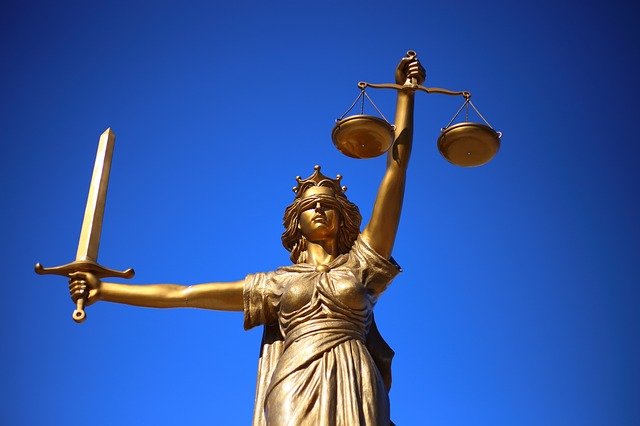Bulk buying is an easy way to save money. You can get bigger packages of products and services at a cheaper rate by buying in bulk, which in turn saves you money if you regularly buy smaller quantities.
You might not think that there’s much to consider when it comes to bulk buying, but you will be surprised at how many rules and regulations there are surrounding the practice. Here we’ll look at some of the legalities of bulk buying and why it’s so tightly regulated.
What is Bulk Buying?
Bulk buying is when a person buys larger quantities of a product or service from a supplier or manufacturer to get a cheaper price per unit.
Some examples include buying in bulk from grocery stores, buying in bulk from a manufacturer or wholesaler, or hiring a business to provide services in bulk. It is also used when people buy certain items in larger quantities for things like cooking, cleaning, and gardening.
Permitted and Prohibited Purchases
Some purchases are always allowed when it comes to bulk buying. These include gasoline, pesticides, livestock feed, food sold in bulk and some agricultural products. Any other product should be purchased in the amount that you would normally buy.
You should never purchase a greater amount of product just because you’re buying it in bulk. Prohibited purchases in bulk include tobacco, alcohol, firearms, and medications. You can also never buy more than one of the same item at a time, even if it’s in bulk.
Consumer Protection when Purchasing in Bulk
When you purchase something in bulk, you’re entitled to the same level of protection as you would receive when purchasing smaller quantities. This implies that you can go to a store, like Scrooz fasteners, buy in bulk and never worry of not having a replacement for broken products.
This is particularly important when it comes to products like food and beverages. You should be able to return any contaminated products, regardless of the amount you purchased. If you purchase food or beverages in bulk, you should also check the “use by” dates and make sure they are not expired. If you purchase food or drinks in bulk, you should make sure that you store them correctly to avoid spoilage.




 Moonstone was only used as a setting for diamonds in the past, but as times change and jewelry trends evolve, designers have experimented with pairing it with other gems. The best jewelry is made of different types of gemstones.
Moonstone was only used as a setting for diamonds in the past, but as times change and jewelry trends evolve, designers have experimented with pairing it with other gems. The best jewelry is made of different types of gemstones.


 When it comes to learning chess, the internet has made it possible to learn from practiced and experienced chess coaches. IchessU, for instance, offers online chess tutor services for both children and adults whether with beginner or advanced chess skills. This online platform for chess mentoring will surely help you learn the rules of chess as well as better expand your understanding of the game and your skills.
When it comes to learning chess, the internet has made it possible to learn from practiced and experienced chess coaches. IchessU, for instance, offers online chess tutor services for both children and adults whether with beginner or advanced chess skills. This online platform for chess mentoring will surely help you learn the rules of chess as well as better expand your understanding of the game and your skills.


 We all want to care for the dogs that we own, and there are ways that we can actually do that. We can insure them that they will get medical attention when necessary, a hot place to live and sleep and love as we could provide, and of course we’d wish to feed them the best.
We all want to care for the dogs that we own, and there are ways that we can actually do that. We can insure them that they will get medical attention when necessary, a hot place to live and sleep and love as we could provide, and of course we’d wish to feed them the best. In Royal Canin, professionals in food nutrition come together to manufacture only the best ingredients intended for the type of dog you have. They go for quality and wouldn’t want to jeopardize your dog’s health.
In Royal Canin, professionals in food nutrition come together to manufacture only the best ingredients intended for the type of dog you have. They go for quality and wouldn’t want to jeopardize your dog’s health. 







 Compared to motorists, cyclists are the weaker road users and are therefore legally protected. Yet they have no fool’s freedom.
Compared to motorists, cyclists are the weaker road users and are therefore legally protected. Yet they have no fool’s freedom.


 The School era is the best time for kids to learn about healthy food, bodies, and action. This is time they begin a hectic social life, have pocket money, and start to help pick their lifestyle. Kids of this age learn fast and will also be affected by their friends and popular styles.
The School era is the best time for kids to learn about healthy food, bodies, and action. This is time they begin a hectic social life, have pocket money, and start to help pick their lifestyle. Kids of this age learn fast and will also be affected by their friends and popular styles. Compared to products-based largely businesses, which may rely on mass-marketing strategies to appeal to perspective clients for their product, law businesses should exert a much more private work in bringing clientele. This is because of the fact that there are not any observable goods getting promoted by means of a law bureau, only subjective legal suppliers.
Compared to products-based largely businesses, which may rely on mass-marketing strategies to appeal to perspective clients for their product, law businesses should exert a much more private work in bringing clientele. This is because of the fact that there are not any observable goods getting promoted by means of a law bureau, only subjective legal suppliers. To discover success with all these social media web-sites, you need to to start with create a profile that’s engaging and actively take part in the flow of information. Inspire people to come up with their homework to incorporate the legal services which you’re supplying. Do not neglect to include a hyperlink pointing to a own law firm’s most important web site, or perhaps far better, a site which you’ve been sustaining. This can be a remarkably underutilized choice for online legal entrepreneurs, and
To discover success with all these social media web-sites, you need to to start with create a profile that’s engaging and actively take part in the flow of information. Inspire people to come up with their homework to incorporate the legal services which you’re supplying. Do not neglect to include a hyperlink pointing to a own law firm’s most important web site, or perhaps far better, a site which you’ve been sustaining. This can be a remarkably underutilized choice for online legal entrepreneurs, and 
 Gamification is regarded as the use of game design components in non-game contexts, in which the components don’t constitute a fully-fledged game. Even though the term has come into general usage only quite lately, principles elements of gamification like collecting points and making badges are utilized for decades in various contexts, for example commercial loyalty applications. Visit to learn new things while gaming.
Gamification is regarded as the use of game design components in non-game contexts, in which the components don’t constitute a fully-fledged game. Even though the term has come into general usage only quite lately, principles elements of gamification like collecting points and making badges are utilized for decades in various contexts, for example commercial loyalty applications. Visit to learn new things while gaming.
